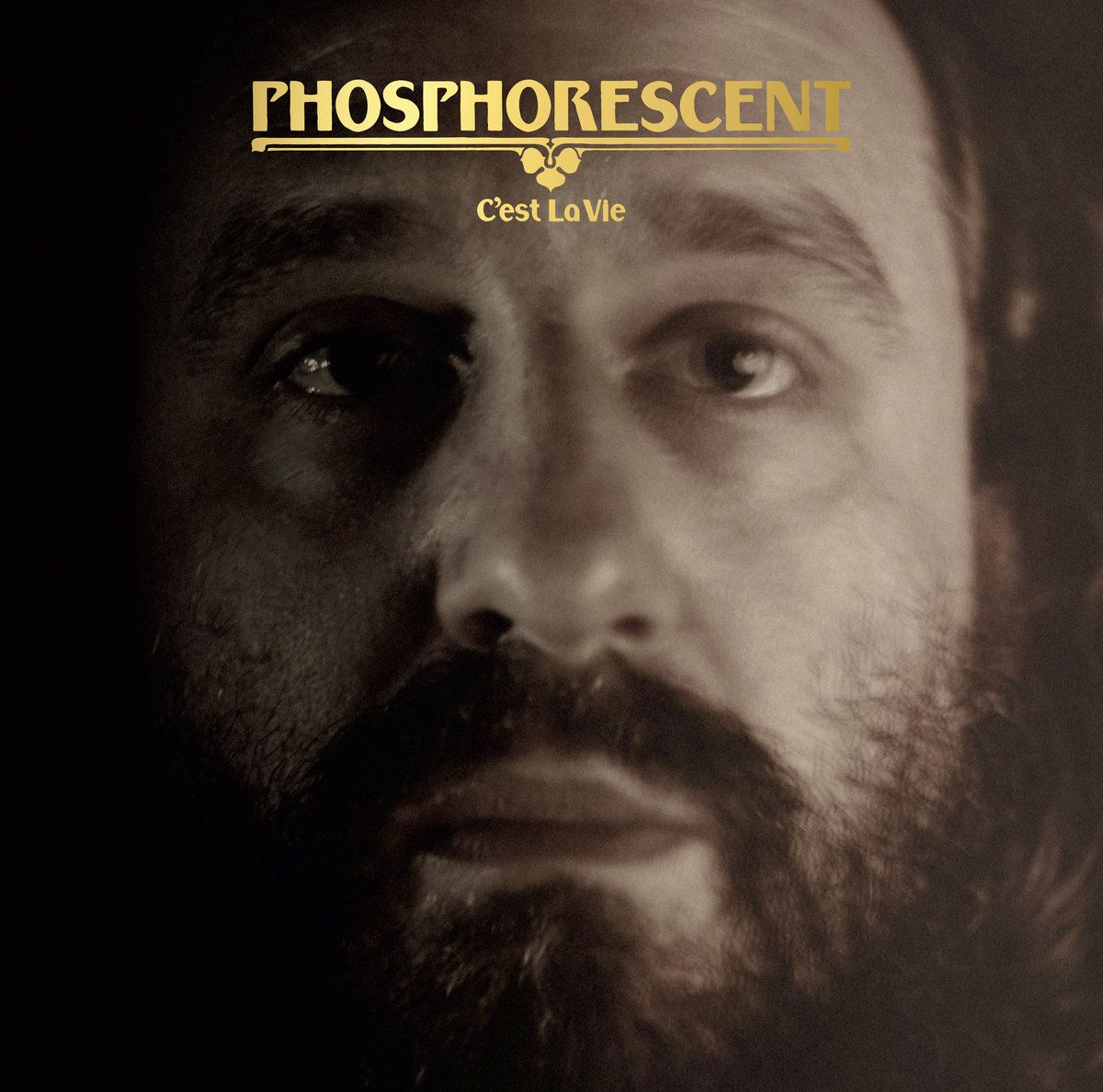Phosphorescent ascends into a newfound journey with ‘C’est La Vie’

Phosphorescent
C’est La Vie
Dead Oceans · October 5th, 2018
It’s as if Huock ripped the lyrics from a page out of his mind, lending a stream-of-consciousness flow to the songs. It makes it more present and more honest.
C’est la vie: that is life. Embracing its uncertainties, and inviting the twists and turns. Matthew Huock cradled this philosophy in his arms when he traded Brooklyn for Nashville and offered up bachelorhood for fatherhood. Five years after Phosphorescent’s famous Muchacho was released, life gifted Huock some age, some wisdom, and even some boldness. C’est La Vie creates a new edge for Phosphorescent’s music, adding more confidence onto the illustrious alt-country sound fans loved before.
The first lyrics on the album, after the wordless ‘Black Moon / Silver Waves’ introduction, are “I wrote all night / Like the fire of my words could burn a hole up to heaven / I don’t write all night burning holes up to heaven no more.” A goodbye to old ways begins the album as Huock begins to explore his personal life, something he specifically refrained from on previous endeavors. While the production is as meticulous and thought-out as his past works, Huock’s lyrics on C’est La Vie feel more first draft. In ‘There From Here,’ Huock candidly expresses growing with his experiences with lines like, “If you’d have seen me last year I’d have said/ ‘I can’t even see you there from here.’’ Many of the lyrics are on-the-nose – which is not necessarily a bad thing. It’s as if Huock ripped the lyrics from a page out of his mind, lending a stream-of-consciousness flow to the songs. It makes it more present and more honest.
The first half of the album marches out, commanding the attention of the listeners. ‘New Birth in New England’ holds the confidence of a Paul Simon song, boasting an enthusiastic gospel choir, spirited piano notes, and an upbeat guitar strum. It doesn’t hesitate to melt into a cerebral hum for a few seconds, forcing listeners to hold their breaths before picking up into the same bar-song soul that it started out with. Amidst the uncertainties of the universe, ‘New Birth in New England’ remains sure of itself and it speaks to a new type of confidence that Huock has. ‘Around The Horn’ echoes this same boldness. A fire catches in the song’s heart as the fervent piano and atmospheric synths carry Huock’s voice across the song. It grabs listeners by the hand and dares them not to listen to the full eight-minute epic (and you’ll listen). The song ascends into a journey bigger than anything Phosphorescent has delivered before, and it empowers the album.
It’s unfortunate that such an optimistic start to an album quickly diminishes at ‘Christmas Down Under,’ a song hard to listen to because of its overly auto-tuned backing vocals that resemble the Mii character songs (seriously!). It’s obvious that the lyrics are meant to be contemplative, but singing “Some say Jesus had a daughter / But I don’t guess he ever met her” comes off as more cheesy than profound. It’s a misstep in a generally solid album, but it throws off the mood for the second half. Instead of the rest of the album feeling poignant and beautiful, the lingering mistake of ‘Christmas Down Under’ leaves a lackluster feeling.
Despite the misstep, C’est La Vie stands as a sign of maturation for Huock. Instead of weeding out his roots, he grew with them, and bred a memorably ambitious album. “A lot can happen in five years,” says Huock. After listening to this album, I believe him.